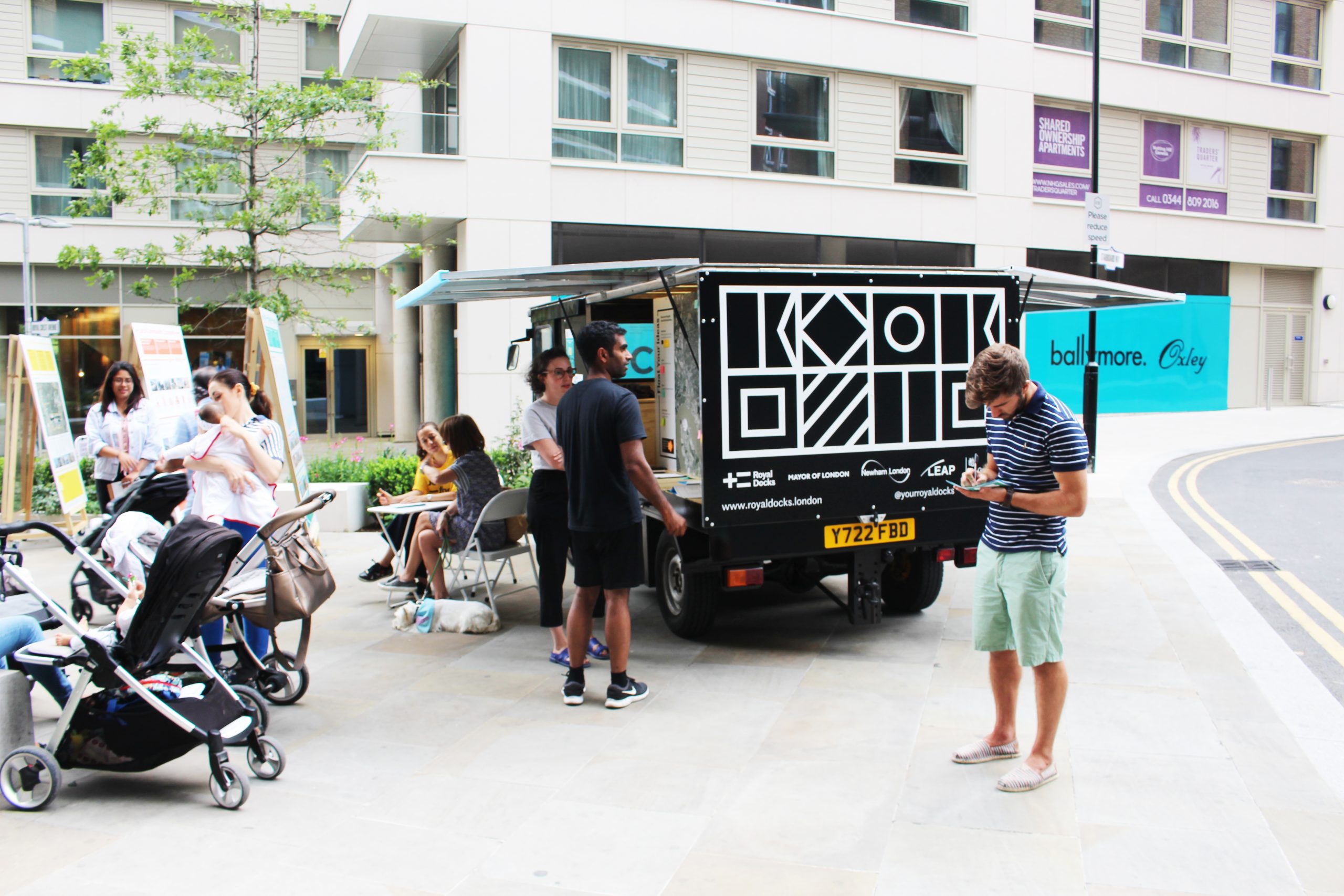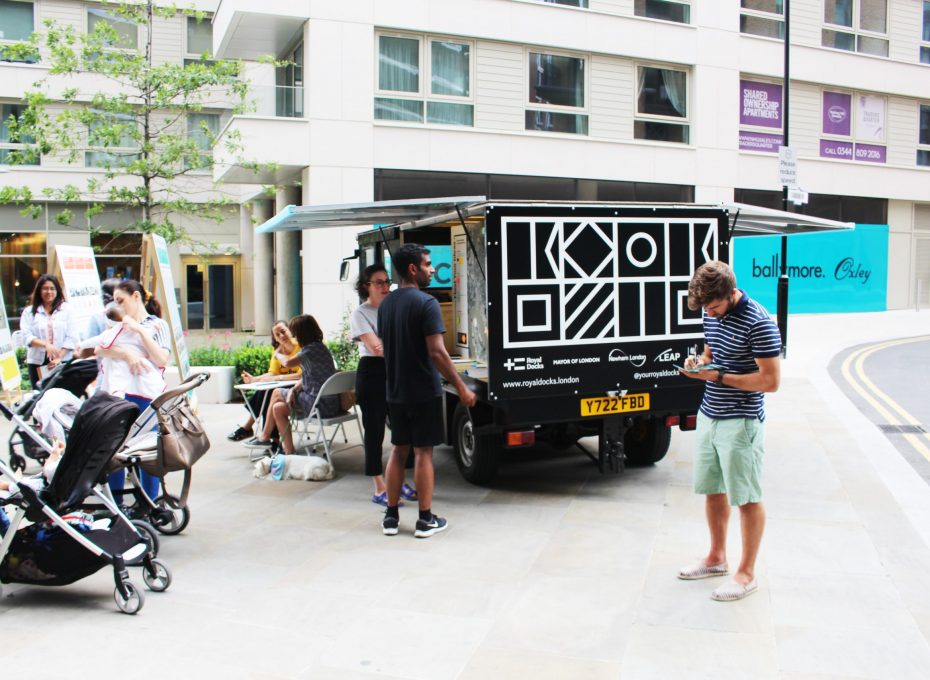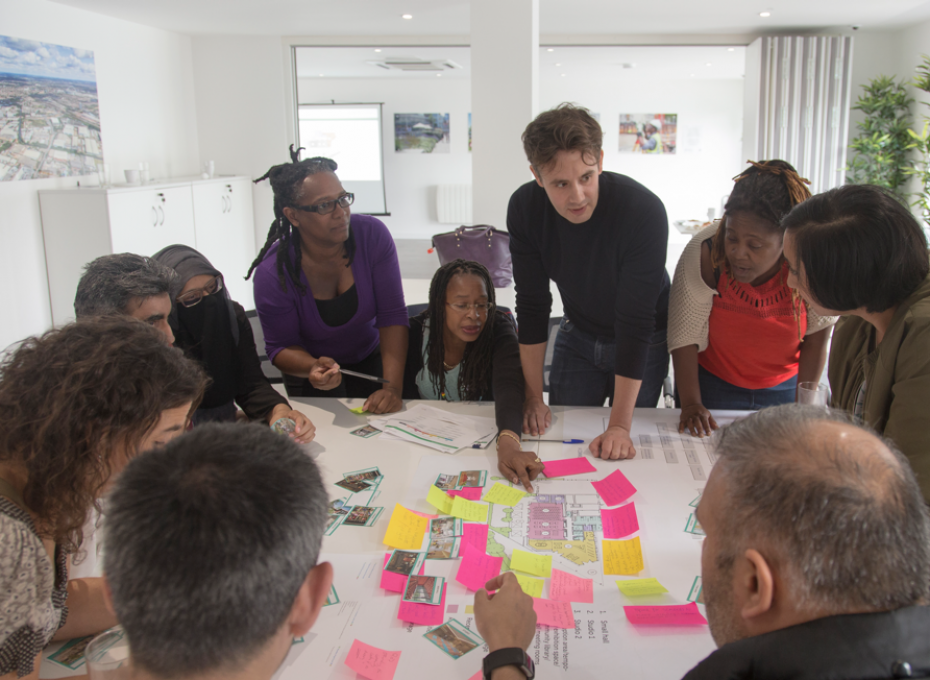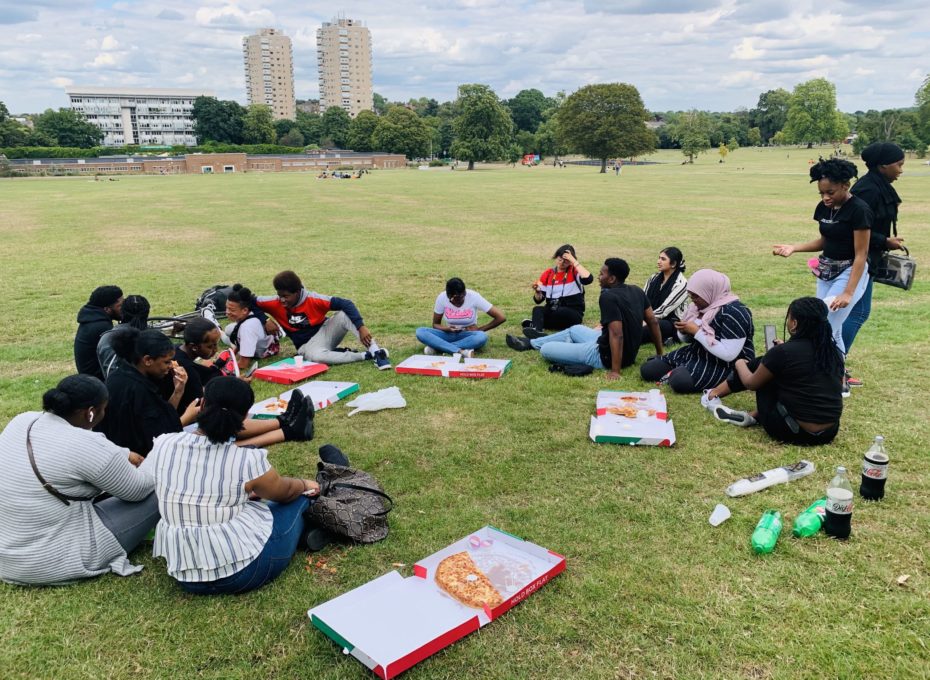ftwork x Centre for London x CCA
partnering in the preparation and launch of a manifesto to transform the quality of community involvement in planning
partnering in the preparation and launch of a manifesto to transform the quality of community involvement in planning
category: collaborations
“Londoners need to be more involved in shaping the way our city is built and managed“. The manifesto, prepared in partnership with Centre for London and Collective Community Action, sets out what the next Mayor of London can do to strengthen public engagement in planning and invites candidates to commit to a Mayoral Statement of Community Involvement and other radical proposals.
The quality of public engagement in development and regeneration in London is too often very poor, creating an adversarial system in which communities distrust the process and developers see ‘consultation’ as an obstacle. It is viewed as an inconvenient add-on rather than a meaningful process by which local people can have a say in shaping the future of their city and their neighbourhoods. It is, after all, a democratic right. Those responsible for our built environment need to recognise that the people who inhabit it represent its character and capacity for growth, and that local knowledge and buy-in are key to creating thriving communities. But can we create the necessary culture change for this to happen?

“Great places are created when they involve the communities that use them… [yet] they are often paid lip service and considered a tactical impediment rather than a force for enlightened and equitable change”. This is is the view of Collective Community Action (CCA), a diverse group of individuals that ftwork helped convene in 2019 and who would not normally sit down together – active citizens, developers, social entrepreneurs, architects, community organisers, engagement specialists. Together we set about discussing how to break down existing barriers within the development process and “galvanize change”. The resulting document, A Network Campaigning for Change, was published in January 2021.
ftwork is a Partner of Centre for London, the capital’s dedicated think tank, which is highly respected as an independent research body and as an active participant in promoting policy change. In late 2020 ftwork approached them with a proposal to conduct in-depth research into the methods and efficacy of public engagement in planning and to work with CCA and others to propose why and how it needs to change. This has resulted in a campaigning manifesto, launched at an online event on 2nd March 2021. The launch was timed to be in advance of campaigning in the run-up to the elections on May 6th.
‘Public Planning: A Manifesto for London’, available here, sets out the difficulties with current public engagement practices, defines some key principles of good practice and invites London’s next Mayor to commit to 5 key steps:
How: Publish a draft Mayoral Statement of Community Involvement that builds on the strong ideas in the current London Plan and is itself subject to the exemplary public involvement that it embodies, and establish Mayoral Community Advocates who can support public involvement at every stage of the process.
Why: Having a say in how our areas look, feel and operate is a democratic right, and must be upheld even more so for people who currently feel cut off from decision making. There are excellent intentions in the London Plan, but they must be given proper weight, and more work is needed to put them into action.
How: Provide funds for a multidisciplinary training programme for local authority officers, councillors and community champions to ensure they work effectively with local people to develop and enhance plans. Establish support funds for community organisations alongside the resourcing of local authorities.
Why: Effective, collaborative engagement that is consistent across all of London requires time and resources. It’s hard for local authorities to do this with their current funding and staffing.
How: Commit to regularly reviewed and updated place-based audits and engagement processes that value and understand what already exists. These should be carried out with local people so there is local knowledge and experience at their core.
Why: Local people, organisations and businesses understand the richness and potential of their areas. Their knowledge provides a valuable baseline for positive change: engagement should build on this existing knowledge rather than trying to recreate it.
How: Develop and launch an accreditation scheme for London local planning authorities and developers that sets standards and recognises and rewards good public and community engagement, similar to the Good Work Standard.
Why: Establishing benchmarks with what good public and community engagement in planning looks like promotes best practice, provides an incentive for developers to deliver – and fund – good community engagement and supports long-term stewardship.
How: Setup a scorecard to help London’s councillors assess the quality of community engagement in applications presented to them at planning committees.
Why: Rebuilding trust between communities, local authorities and developers requires greater openness. Supporting good and transparent decision making is an important part of this.
““Great places are created when they involve the communities that use them… [yet] they are often paid lip service and considered a tactical impediment rather than a force for enlightened and equitable change””
— Collective Community Action manifesto
It is a problem that the built environment professions often work in silos, driven either by commercial interests or by the constraints of the way buildings are procured. As a result public engagement has been reduced to a tick-box exercise, even on very major regeneration projects. The number and range of voices involved in the process has also been reduced, to the point where ‘interested parties’ are the only ones to be heard and genuine stakeholders are excluded or ignored.
Bringing together round the table a diverse group of individuals, each with a different experience of the development process, was in itself an important step, because the barriers to communication have become so impenetrable. If local citizens do not feel they can trust developers and planning authorities, then what is the point of talking? By coming together over a period of 18 months, to air opinions and discuss proposals, Collective Community Action has been able to break down some of the barriers and come up with radical suggestions. So successful has the discussion been that the group is now turning its attention to other important issues such as education and training. The aim is to bring about systemic and sustained change.



ftwork cut its campaigning teeth as an active participant in the Examination in Public of the draft new London Plan in 2019. We sat alongside several community groups which were also trying to ensure that the Plan’s ‘good growth’ rhetoric translated into policy detail. We learnt a great deal from their arguments and grass-roots experience, but also succeeded in influencing some of the content. Not enough, perhaps, but people’s collective experience of the pandemic has also begun to influence opinion about the need, motivation and capacity for local communities to help drive and sustain social change.
Since that time this has been a central focus for ftwork’s efforts. It is not enough to have discussions or make statements about good intentions – however good they are – without a plan to implement them. Change is brought about by action not just words; and action is best achieved through collaboration. ftwork has found an important role in bringing people and organisations together – across sectors and social groupings – to bring about social change. Centre for London’s ‘Public Planning: A Manifesto for London’ and CCA’s part in its preparation is an excellent example.